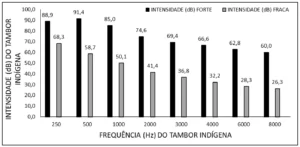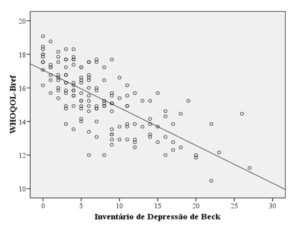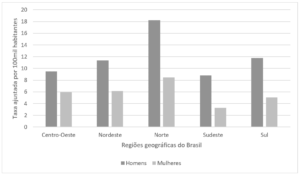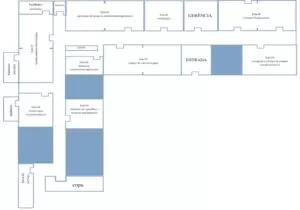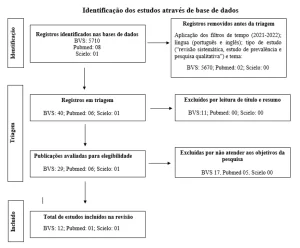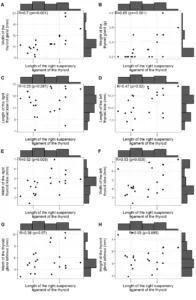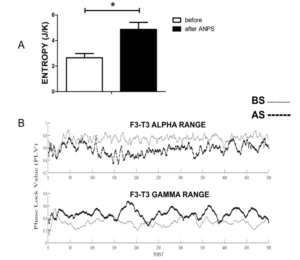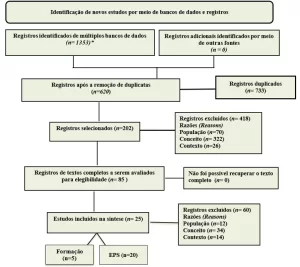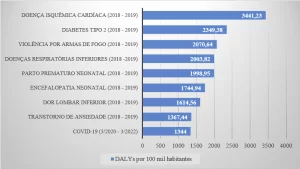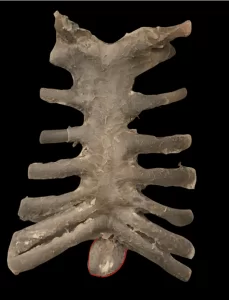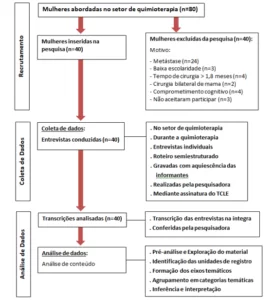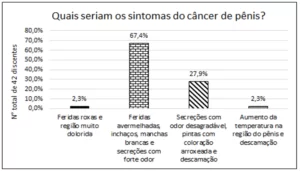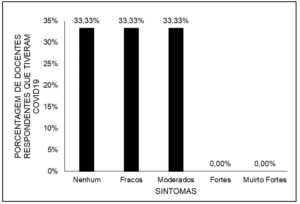BATISTA, Janine [1]
BATISTA, Janine. The use of new technologies in control of Alzheimer's disease. Multidisciplinary Core scientific journal of knowledge. 03 year, Ed. 06, vol. 07, pp. 108-129, June 2018. ISSN:2448-0959
Summary
Alzheimer's disease causes problems with memory, thinking and behavior. In the early stages, the symptoms of dementia can be minimal, but as the disease causes further damage to the brain, the symptoms get worse. The rate of progression of the disease is different in each person, but, on average, people with Alzheimer's disease live about eight years after the onset of symptoms. Although currently there is no treatment to stop the progression of Alzheimer's disease, there are medications to treat the symptoms of dementia. Over the past three decades, the research on dementia brought deeper information about how Alzheimer's disease affects the brain. Currently, the researchers are still seeking more effective treatments and cures, as well as ways to prevent Alzheimer's disease and improve the health of the brain. Objective: to address the importance of the application of new technologies as a way to lessen and mitigate the impact of Alzheimer's disease in the elderly. For obtaining data with theoretical and scientific basis, over a period, in most part, to 10 years. The study will present a qualitative approach, since it will describe actions, through the deepening of the understanding of the Organization, methods applied.
Keywords: Alzheimer's disease, Neuropathology, Symptoms, care, Complications.
Introduction
Alzheimer's disease (ad) is classified as a neurodegenerative harm that affects cognitive ability of the aged, interfering in behavior, reducing work capacities and social relationship. At first, the elderly lose your latest memory, but can remember with accuracy of events years ago. Alzheimer's is a disease of great impact on the daily life of the person, because it affects, among other things, the ability of learning, understanding, guidance, attention and language. The person becomes more and more dependent on the help of others, as this becomes necessary some changes in the familiar. So it becomes necessary the help of relatives or caregivers in aid of locomotion, feeding the elderly, i.e. basic routines.
When a patient is diagnosed with some necessary changes happen in the behavior of the family, because all members are affected in different degrees. This can lead to the expulsion of some members for various reasons, among them: shame or because they don't understand or don't know about the disease. Take care of the elderly is to have awareness, acceptance and broad recognition, both individual and collective aspect of aging as an inherent existential process. The process of care is an exercise that occurs over time and is not planned. In short, the work aims to show how technology goes into that aspect as a way to mitigate the impacts of the, so in that stimulates the cognitive functions of the elderly. Alzheimer's disease has no cure, so the technology, in its various spheres, acts as a way to control the impacts of such disease in the elderly's life.
This work is justified in imminent need of point studies and improvement on technologies to improve the quality of life of older people suffering with Alzheimer's disease. Show, through a literary review, the importance of research to the development of technologies in the context of mental health of the elderly in the context of ageing as an individualized process with unique capabilities and different. The present study will expose the possible benefits that such technologies can provide to the elderly affected by Alzheimer's. Therapeutic strategies in cognitive impairment and functional for the elderly. Exposing so that science is constantly evolving and promoting improved health, making an incentive and motivation in academic life.
With the advancement of medicine and therapeutic innovations in the treatment, prevention and control of neurodegenerative diseases is the following question: in what sense the application of new technologies contribute to the control of Alzheimer's in elderly?
Addressing the importance of the application of new technologies as a way to lessen and mitigate the impact of Alzheimer's disease in the elderly. Contextualize about Alzheimer's disease: the location that is affected, the symptoms and diagnosis; address on the technologies used to relieve and control symptoms; present the nurse in the educational process for caregivers of Alzheimer's disease.
In the preparation of this work, be used to search for bibliographic character, in which through the works of various authors will be required to draw up the fostering of this theoretical work. Aiming mainly to find the most effective responses in the literature to help you understand the importance of the inclusion of new technologies in the treatment of Alzheimer's disease in the elderly. The research will start through a survey of the theoretical Journal of scientific platforms, such as Scielo, Google Scholar and PubMed, Web sites, newspapers and books for obtaining data with theoretical and scientific basis, over a period, in most, of 10 years. The study will present a qualitative approach, since it will describe actions, through the deepening of the understanding of the Organization, methods applied.
1. Alzheimer's
When a patient is diagnosed with some necessary changes happen in the behavior of the family, because all members are affected in different degrees. This can lead to the expulsion of some members for various reasons, among them: shame or because they don't understand or don't know about the disease. Take care of the elderly is to have awareness, acceptance and broad recognition, both individual and collective aspect of aging as an inherent existential process. The process of care is an exercise that occurs over time and is not planned. Alzheimer's disease is initially loaded with the form of progressive worsening neurological functions. The injury most eminent clinical is in memory of episodic form and with obvious damage in the acquisition of new skills. Already in the intermediate stages, fluent aphasia, evidenced by the difficulty to name objects or choose the proper word to express an idea. And, finally, in the terminal stages, there are striking changes in the sleep cycle – vigil and behavioral changes such as irritability and aggression, psychotic symptoms, inability to walk, talk and perform personal care (GRANDSON, 2005, pag. 120).
1.1 Neuropathology
The peptide (AB) beta-amyloid is not usually found on all when in youth, is normal in old age 80 and 90 years after. The peptide arises from the processing of a protein called amyloid precursor (APP), is a normal protein that has extracellular domain which crosses the cell membrane and is cleaved by an enzyme called secretase (Alpha secretase and gamma secretase) . The Neurodegeneration is caused through various mechanisms such as: oxidative stress with mitochondrial dysfunction; activation of NMDA receptors; excitocicidade induced by Ca2 + and production of reactive oxygen species by proteolytic cleavage; for enzyme activation inflammatory process; expression of inflammatory proteins, cytokines and glial activation. The neuroinflamação has been characterized in different models, including the model AB peptide-induced, by the activation of glial cells astrocytes and microglia with the production of inflammatory cytokines TNF-a and IL-6. Inflammatory and oxidative enzymes COX-2 and iNOS, activation of MAPK pathways, ERK and JNK; inflammatory reactions in the CNS can activate other mediators and cause edema (SERENIKI, 2008, Pag. 04-17).
The APP follows the route of processing when this is going to be cleaved by secretase and gamma-secretase-generating the SAPPa and P3; that are not amiloidogenese not aggregates and does not form toxic enzymes. The beta-secretase cleaves and appears in a different location of the gamma-secretase and y-secretase cleaves at the same location in the APP and raises the AB peptide, if aggregate and form the plates and this card will support neuronal death (DE SÁ CAVALCANTI, 2012, Pag. 24-25).
The oligomer AB is able to induce changes of TAU protein (this change is one of the major causes of death of neurons) in hipocampais neurons. The soluble forms of monomers, low molecular weight oligomers and protofibrilas that is associated with the progression of the disease, with the loss of synaptic plasticity and Neurodegeneration. AB peptide affects the characteristics of cognition concerning LPP dysfunction (long-term potentiation) and the Synapse glutamatérgica. AB peptide if antagonizes affecting the Nicotinic Receptors, the L-type calcium channels, P75NTr and the NMDA receptor, causing calcium has two roles: it can either activate heroes season 1 episode 14 as the phosphatase calcineurin and generating LTP (long-term process). LTP is responsible for storing, the LTD is responsible for the extinction of synapses; AB peptide reduces the PTKs, which promotes the LTP as CAMKs decreasing the fosforização of PCREB, increasing the calcineurin and calpaina which are other enzymes involved in the LTD. Then the AB oligomer increases LTD and LTP thus causing decreases, the insufficiency of neurons process information generating oblivion showing early symptoms of Alzheimer's (ALMEIDA, 1997, pag. 77-79).
Alzheimer's is a disease that has no cure, and attacked mainly elderly people in the area of the brain responsible for memory, it ends up causing the person with the time go losing your memory and develop dementia and may lead to death. The problem raises the Alzheimer's within a cytoplasmic organelle called mitochondria; the mitochondria is one of the few organelles that has your own DNA, it assumes a certain dependence on the nucleus of cells, if she wants to divide the cytoplasm divides her she doesn't need an order from the core of the DNA is in the nucleus p ARA who can do that. The function of the mitochondria within the cells of all eukaryotes living on planet Earth is making energy, she is our energy production plant, all the energy that the cell needs to make their day to day activities who will produce will be the mitochondria. When mitochondria produce energy, produces a cell called ATP (adenosine triphosphate), when it produces ATP generates a lot of free radicals, i.e. stable molecules that can combine with other molecules and with the DNA, and end up harming and damaging This DNA. When mitochondria produce ATP for the cells it produces many free radicals as we've talked about previously, and these free radicals ultimately destroy the genetic material of mitochondria, and the destruction of mitochondrial DNA that is causing Alzheimer's in people (FRIDMAN, 2004, p. 20-24).
1.2 complications and risk factors
Alzheimer's disease is initially loaded with the form of progressive worsening neurological functions. The injury most eminent clinical is in memory of episodic form and with obvious damage in the acquisition of new skills. Already in the intermediate stages, fluent aphasia, evidenced by the difficulty to name objects or choose the proper word to express an idea. And, finally, in the terminal stages, there are striking changes in the sleep cycle – vigil and behavioral changes such as irritability and aggression, psychotic symptoms, inability to walk, talk and perform personal care (GRANDSON, 2005, PG. 120-122).
The loss of memory, loss of language, prejudice in the trial and other cognitive changes caused by Alzheimer's can complicate the treatment for other health conditions. A person with Alzheimer's disease may not be able to communicate or report symptoms of another disease. The most common cause of death among people who have Alzheimer's disease is the aspiration pneumonia. The disease presents itself when the person can't swallow right, any food or liquids instead of down the esophagus down the trachea blocking causing damage, injury and/or infection. The type of treatment is determined by several factors: If the pneumonia is diagnosed early and your pregnant, the volume in which they were affected the lungs and the types of bacteria present and the State of health of the person. There are other complications associated with Alzheimer's disease among others: loss of motor functional capacity to care, bone fractures and falls, loss of ability to relate to other people, dehydration and malnutrition, insufficient organic systems, change of negative behavior such as aggression with others or to himself, forgetting facts and events or recent conversations, difficulties to find out the name of the family, problems with speaking, loss capacity in social and personality change, loses interest by the activities they enjoyed in the past, difficulty reading and writing, poor judgment and loss of ability to recognize dangers, these complications can be originated from progressively and degenerative symptoms of Alzheimer's disease (VENEZIAN, 2010, pag. 130-133).
The risk factors of Alzheimer's disease may be associated with: severe head trauma or repeated have a higher risk of acquiring of: lifestyle and heart health, there is no lifestyle factor that has been conclusively shown to reduce the risk of Alzheimer's disease. However some evidence suggests that the same factors that pose risks of heart disease may also increase the chance that you will develop Alzheimer's disease. Increasing age is most known for the DA; Alzheimer's is not a part of normal aging, but the risk increases after reaching 65 years of age. Almost half of the population with more than 80 years have Alzheimer's disease. People with rare genetic changes virtually guarantee that they will develop Alzheimer's disease and in them, the symptoms begin to appear very early, from 30 years of age (APRAHAMIAN, 2009, pag. 33-35).
Women may be more likely than men to develop Alzheimer's disease, in part, because they live longer. In people with mild cognitive impairment mild cognitive impairment have memory problems problems or other symptoms of cognitive decline that are worse than expected for your age, but it's not severe enough to be diagnosed as dementia. Mild cognitive impairment people have an increased risk, but not sure which later will develop dementia. Take measures to develop a healthy lifestyle and strategies to decompensate the memory loss at this stage can help slow or prevent the progression to dementia. The risk of developing Alzheimer's disease looks a bit higher if a first-degree relative has been affected by the disease. Other risk factors that contribute to the emergence of the disease: lack of exercise, smoking, high blood pressure, high cholesterol, high levels of homocysteine, poorly controlled diabetes, a diet deficient in fruits and vegetables these risk factors also are linked to vascular dementia, a kind of dementia caused by damaged blood vessels in the brain (AZEVEDO, 2010, pag. 02-04).
Social aging, stimulating activities, higher levels of formal education, stimulating work, mental activity and challenging reading, leisure games, play instruments are factors that can reduce the risk of the disease, learning to and social engagement.
2. Clinical manifestations of Alzheimer's disease
Some oblivion can be a normal part of aging. However, some people have more memory problems than others of your age. This is a condition called mild cognitive deterioration. People with mild cognitive impairment can take care of themselves and may develop their activities normally (REISBERG et al., 2006).
Alzheimer's disease starts slowly, first affects parts of the brain that control thought, memory and language. People with evil may have trouble remembering things that happened recently or the names of people they know. A related problem, mild cognitive impairment, causes more memory problems than normal in people of the same age. Many, but not all people with mild cognitive impairment, will develop Alzheimer's disease (ULRICH et al., 2000).
Memory problems of mild cognitive impairment may comprise
Lost objects with frequency
Forget to go to gigs and appointments
Having trouble finding the right words in a given time than other people
Over time, the symptoms of Alzheimer's get worse. People may not recognize their relatives. They may have difficulty in speaking, reading or writing. They can forget how to brush their teeth or combing their hair. Later, they may become anxious or aggressive or stay away from home. Finally, they need total care. This can be very stressful for the family members who need to take care of them (JELLINGER, et al., 2008).
Alzheimer's disease usually begins after the age of 60. The risk increases as the person ages. The risk is greater if there are people in the family who had the disease. No treatment can stop the disease. However, some drugs can help prevent symptoms worsen for a limited time.
Your doctor may perform tests of thinking, memory and speech to determine whether you have mild cognitive impairment. You can also suggest to consult a specialist for more tests. Since the mild cognitive impairment can be an early sign of Alzheimer's disease, it is very important to consult your doctor every 6 to 12 months. Right now, there is no effective treatment against mild cognitive impairment. The your health care provider may want to see if any changes in your memory or intellectual process occurs over time (WIMO et al., 2013).
2.1 The symptom of Alzheimer's disease
As we age, our brain changes, and we may have sporadic problems to remember certain details. However, Alzheimer's disease and other dementias cause memory loss and other symptoms severe enough to interfere with everyday life. These symptoms are not a natural part of aging (ENGELHARDT et al., 2005).
Besides memory loss, symptoms of Alzheimer's disease include:
- Problems running tasks that were once simple.
- Difficulty in solving problems.
- Changes in mood or personality; detachment from friends and family.
- Problems in written or oral communication.
- Confusion of places, people and events.
- Visual changes such as understanding of the images.
Family members and friends can experience symptoms of Alzheimer's disease and other dementias progressives before the person suffering these changes. If you or someone you know are experiencing possible symptoms of dementia, it is important that a medical assessment is done to determine the cause. Visit our page The 10 signs and early symptoms of Alzheimer's disease to learn more about the difference between natural changes in memory and age-related brain and the symptoms of Alzheimer's disease.
The memory loss that disrupts daily life can be a symptom of Alzheimer's disease or another dementia. Alzheimer's disease is a brain disease that causes a slow decline in memory skills, thinking and reasoning. There are 10 warning signs and symptoms. Every individual may experience one or more of these signs in varying degrees. If you notice any of them, consult a doctor (INOUYE; OLIVEIRA, 2004).
2.2 early signs and diagnosis of Alzheimer's disease
Memory loss that disrupts daily life; one of the most common signs of Alzheimer's disease is memory loss, especially forgetting recently learned information. Others include forgetting important dates or events; asking for the same information repeatedly; increasingly need to rely on memory AIDS (e.g., reminder notes or electronic devices) or family members for things that used to handle on their own (AGUILAR; PONDÉ 'S SONGS., 2006).
Challenges in planning or solving problems
Some people may experience changes in your ability to develop and follow a plan or work with numbers. They may have problems to follow a family recipe or keep track of monthly bills. They may have difficulty in concentrating and take much longer to do things than before.
Difficulty completing familiar tasks at home, at work or at leisure People with Alzheimer's generally find it difficult to complete daily tasks. Sometimes, people may have trouble driving to a familiar location, managing a budget at work or remembering the rules of a favorite game.
Confusion with time or place; people with Alzheimer's disease may lose the dates, seasons and the passage of time. They may have trouble understanding something is not happening immediately. Sometimes, they may forget where they are or how they got there (LUZARDO; GORINI; SCOTT, 2006).
Trouble understanding Visual images and spatial relationships; for some people, having impaired vision is a sign of Alzheimer's disease. They may have difficulty reading, judging distance and determine the color or contrast, which can cause problems with driving.
New problems with words in speaking or writing; People with Alzheimer's may have problems to accompany or join a conversation. They can stop in the middle of a conversation and you have no idea how to continue or can be repeated. They can fight with vocabulary, have trouble finding the right word or call things by the wrong name (for example, calling a "clock" from a hand "Watch") (AVILA et al., 2003).
Desajustando things and losing the ability to go back to steps; A person with Alzheimer's disease may put things in unusual places. They can lose things and cannot return to their steps to find them again. Sometimes, they may accuse others of stealing. This can occur more often over time.
Discreet or weak judgment; People with Alzheimer's can experience changes in judgment or decision-making. For example, they can use a weak judgment when dealing with money, giving large amounts to telemarketers. They may pay less attention to the preparation or stay clean (PAUL et al., 2010).
Withdrawal from work or social activities; a person with Alzheimer's disease may start to retire from hobbies, social activities, work projects or sports. They may have trouble keeping up with a favorite sports team or remembering how to complete a favorite pastime. They can also avoid being due to social changes experienced.
Mood and personality changes; The humor and the personalities of people with Alzheimer's disease can change. They can become confused, suspicious, fearful or depressed, anxious. They can be easily hurt at home, at work, with friends or in places where they are out of your comfort zone (ARRUDA; ALVAREZ; Gonçalves, 2008).
There is no simple test to determine if a person has Alzheimer's disease. The diagnosis requires a full medical evaluation, which may include:
- Family medical history.
- Neurological examination.
- Cognitive tests to assess memory and reasoning.
- Blood tests (to rule out other possible causes of symptoms).
- Images of the brain.
Although doctors generally can determine if a person has dementia, it can be very difficult to distinguish the type of dementia that is. The wrong diagnosis is very common in early-onset Alzheimer's (GARRIDO; ALMEIDA, 2001).
Receive an accurate diagnosis at an early stage of the disease is important because it allows:
- Greater chance of benefit from treatments available, which can improve the quality of life.
- The possibility of receiving support services.
- The opportunity to participate in clinical studies and trials.
- The possibility of expressing their wishes in relation to future problems and housing.
- Time to order financial and legal plans.
There is no simple way to detect Alzheimer's disease. The diagnosis requires a full medical examination. Blood tests, tests of mental state and brain images can be used to determine the cause of the symptoms (CHAVESF et al.., 2011).
3. Care applied to caregivers of Alzheimer's disease
Provide care to a person with Alzheimer's disease or another dementia can be rewarding and challenging. In the early stages of dementia, a person can keep your independence and needs a lot of attention. However, as the disease progresses, if care needs will intensify and, eventually, will require assistance 24 hours a day.
Often, we hear caregivers and family members expressing that one of the most distressing aspects of Alzheimer's disease is a change in behavior. There are many resources available to help caregivers, namely, what to expect and how to adapt during the early, middle and late stages of the disease (GARCES et al., 2012).
As the leading voluntary health organization in the world dedicated to the care, support and research on Alzheimer's disease, the Alzheimer's Association strives to improve the quality of life for people facing Alzheimer's disease and other dementias We fund basic research; We offer education and resources; increase public awareness and promote, in partnership with the Government, private and non-profit organizations to achieve our vision of a world without Alzheimer's disease.
No two people suffering Alzheimer's disease the same way. As a result, there is not only a technique for the caregiver. Caregiver responsibilities will change as the disease progresses. Caring for a loved one can be a very satisfying, but at the same time, it can be a lot of responsibility. Don't think you have to do it alone. Take care, seeking support from family and friends and get help for different resources in your community (CALDAS, 2003).
3.1 patient care with Alzheimer's
For the Alzheimer's patient care must first take into consideration recommendations. To perform the careful, you should make a simple routine and maintain schedules and a request; to communicate, you must send short messages, simple, clear, repeatable and can help with gestures; should not be a fight and should leave as much time as you need.
Essential care for the Alzheimer's patient is based on hygiene, food, environment, behavior and disposal. In terms of hygiene, we should encourage them to keep it and we will have to supervise or help as the disease progresses. It is important to maintain good hygiene stay well and keep a good image and also prevent physical complications like skin irritations, sores, infections and ulcers; prevent psychological complications, such as changing of self-esteem and behavioral disorders; and social complications as rejection, decreased participation in activities and isolation (QIU et al. 2009).
Food is very important to get a proper nutritional contribution to maintaining the health and quality of life. Alzheimer's patients may have altered nutritional status due to insufficient intake because it decreases the appetite and memory disturbances influence the food store or buying them, and also because of the disease, there is an increase in activity Physics for roaming and thus increase the energy expenditure. There may also be chewing or swallowing the food intake and must act accordingly.
In the configuration of the Alzheimer's patient, one will have to make some changes due to memory loss and other changes, but without drastic changes that may confuse you at the point of the Middle stop being familiar. In the course of dementia, behavioural disorders may occur can make the familiar coexistence difficult and sometimes even impossible. These behaviors are not made intentionally, but are a consequence of the disease and the problem that triggers this behavior should be redirected or avoided.
Incontinence is a problem that causes great discomfort in the elderly and their carers, and can lead to isolation because of feelings of shame about. The constipation is also a problem that we have to limit with some guidelines (MOURA; MIRANDA; Rangel, 2010).
A caregiver is a person who assists or takes care of another person affected by any type of disability, disability or disabilities that impede or prevent the normal development of their vital activities or social relations. Primary caregiver takes the main tasks and responsibilities to take care, without receiving economic compensation, and this paper is accepted by the rest of the relatives. There are two types of caregivers: caregiver and caretaker of modern society:
Caregiver: caregiver's traditional customary that has always lived with the patient and took care of it. In this case, the patient is attended in a context of social obligation mixed with affection built over many years of coexistence where the exchange of support was more or less reciprocal (BARRIE; CIOSAK, 2009).
Guard in modern society: it is he who took over that role circumstances, i.e. when the occurrence of the disease in the family forces create a caregiver relationship that did not exist previously. In this case, moreover, the caregiver usually has an activity of work away from home, which brings more tensions to coordinate your socio-professional role with the caregiver (PANESAR; SEHNEM, 2011).
3.2 characteristics of the patient with Alzheimer's caregiver
The family is the main source of care, several investigations concluded that the care of patients with Alzheimer's disease comes from 50% of the family environment, while social and professional services only 3%. The main informal caregiver Alzheimer's patient is estimated that after several studies corresponds to an informal caregiver, especially women, and these take the responsibility in your condition of wives or daughters, namely, maintain a relationship of direct kinship. In Brazil, there are about 3 million people who are in charge and other people in a situation of dependency, of them one-third are men (BOTTINO et al., 2002).
There is no exact definition of a valid, this power Rack to perform the tasks that care must meet the following criteria: must be informed of any disease process, i.e. stages of illness and the types of care at each stage; must be resolved according to the problems that appear on the day of the day; must know how to plan tasks and delegate functions; get help when you need to know how to take care of yourself and find your personal space and your privacy.
According to a descriptive study of a quantitative approach of a sample of 84 caregivers of Alzheimer's in the city of Cartagena, it was found that 64% of caregivers did not have the training necessary to perform the role of caregiver and 72.62% to were trained to be caregivers (of NEW CROSS; HAMDAN, 2008).
Caregiver overload also called burn-out syndrome or burn-out syndrome is the result of the combination of psychological stress, physical tension and emotional pressure in relation to the burden of assistance goal. The overload of care can anxiety, stress and depression, as well as the existence of the increased costs of the disease is one factor that is associated with the personal overload and influencing the role of the caregiver that hinders your activity.
The caregiver's functions depend on the degree of disability of the patient and are linked to the evolution of the disease, so that the needs of the caregiver also change to measure the progression of the disease. The overload of the caregiver can lead to lameness of it, that is, many caregivers have the sensation of feeling physically and emotionally stuck and in some cases even guilt appear if they think about themselves and these perceptions can cause inability to continue to respond to the demands and needs of the patient.
The role of nursing is essential to provide comprehensive support to people with addiction and caregivers seeking the maintenance of your personal autonomy, as well as provides full and continuous support to the family, specifically the caregiver as well as improving resource efficiency of dependent care and establish connections between formal and informal resources.
So the main caregiver keep a good quality of life, relieve the burden and your impact effectively. The overhead can be reduced indirectly with the treatment of the disease or directly with the caregiver. Caregiver support interventions are effective for the prevention and treatment of excessive load (AMENDOL; OLIVEIRA; ALVARENGA, 2008).
Are programs with periodic activities and evaluations of which their actions that they develop are educational psychology group or individual, support groups, contact by phone or internet, family involvement, educational programs, troubleshooting and facilitation of resources available.
New technologies as a new bearer of the self-help model Alzheimer's disease: in these times that the lack of time is important, you can help with new technologies, is a communicating with other people who are in the same situation and to exchange opinions , experiences and resources. With new technologies, enables communication of people from different places of origin and also start friendships. The following are the most widely used internet:
Forums: serve visitors to express their opinions, ask questions, report and exchange information. They work for free and informal and have a moderator (the) that is responsible for supporting the Forum and that works properly (OLIVEIRA; D'elboux, 2012).
Blogs and Facebook: a space on the Internet where a person expresses their ideas, experiences, opinions and where others may reply to you via comments (FREITAS et al., 2008).
Messenger: consists of a way to instant messaging that allows oral or written conversation in real time and allows for more intimacy than in other internet tools. According to the scientific evidence no conclusive evidence was found to support interventions based on the technologies that support these (VILELA; CARAMELLI, 2006).
The scientific evidence recommends that an initial assessment of the caregiver to identify the factors that influence the overload and determine, in case of overload, the degree which features. To improve the care of the caregivers and reduce the overhead, a program that combines education, emotional, facilitating and monitoring throughout the process (FALCON; MALUSCHKE, 2009).
The evidence also recommends that professionals encourage caregivers to participate in mutual aid groups as they bring what will allow them to better address on a daily basis with the patient and improve your personal situation. In addition, if there is help from health professionals in these groups, it is even more recommended, since the information received will be a specialist and will improve to treat patients (PINTO et al., 2009).
Finally, it is stated that professionals must also explain the existence of associations of families of patients with Alzheimer's and the benefits they can get from them, since all the scientific evidence recommends can be found in these associations.
Final considerations
The reality of people with Alzheimer's dementia, as well as their families, is a very difficult and delicate process, especially for the caregiver, who is who holds the greatest weight, since, although it has the support and the help of the other members, she's the one who devotes most of time to the attention of your relative, which can lead to overload and continuous stress.
With this work, we were able to observe that, in most cases, as the theory says that it is women who, for one reason or another, take control family care and that leads us to think that, in addition to the individual or personal reasons, we're still in a traditional court society in which the woman, by the mere fact of being a woman, is credited with the role of the caregiver, for being the most qualified to perform this task.
The impact of informal care for a person with Alzheimer's is supposed to set the family is very high, as there are many changes in all areas of life people: youngsters are seen in a situation that can become very difficult because they don't understand what is going on and are offered little information about it; caregivers face a situation of stress and fatigue (physical and psychological) that affects his social relationships outside the home; and, of course, to the patient himself, whose situation is deteriorating as the disease progresses. For these reasons, it is very important that the families have a network of support, both institutional and social.
References
ALMEIDA, p. "molecular Biology of Alzheimer's disease: a light at the end of the tunnel?" Journal of the Brazilian Medical Association 43.1 (1997): 77-79). Available in<http: www.scielo.br/pdf/ramb/v43n1/2078.pdf="">.</http:> Accessed 26 August 2017 >.
AMENDOLA, Fernanda; Of Campbell, Maria Amelia; Malik Alvarenga, Márcia Regina. Quality of life for caregivers of dependent patients in the family health program. Text Context nursing v. & 17, n. 2, 2008. Available in< http://www.redalyc.org/pdf/714/71417207.pdf="">. Accessed, 09 October 2017.
AGUILAR, Rosana Aguilar; PONDÉ 'S SONGS, Milena Pereira. Efficacy of memantine on Alzheimer's disease in their moderate to severe stages. J Bras Psiquiatr, v. 55, n. 2, p. 148-153, 2006. Available in< http://www.scielo.br/pdf/jbpsiq/v55n2/v55n2a09="">. Accessed, 06 October 2017.
ARRUDA, Micheli Coral; ALVAREZ, A. M.; GONÇALVES, Lucia Helena Takase. The familiar caregiver Alzheimer's disease carrier end of a mutual aid group. Cienc health care, v. 7, n. 3, p. 339-45, 2008. Available in< https://www.researchgate.net/profile/lucia_goncalves/publication/251067101_o_familiar_cuidador_de_portador_de_doenca_de_alzheimer_participante_de_um_grupo_de_ajuda_mutua_-_doi_104025cienccuidsaudev7i36505/links/576298a608ae2a00c8bafec3.pdf="">. Accessed on 07 October 2017.
Renata Avila, et al. Results of Neuropsychological rehabilitation in patients with mild Alzheimer's disease. Journal of clinical Psychiatry, v. 30, n. 4, p. 139-146, 2003. Available in< http://www.scielo.br/pdf/rpc/v30n4/v30n4a04="">. Accessed, 06 October 2017.
AZEVEDO, Patricia Gomes De, et al. "Language and memory in Alzheimer's disease undergoing moderate." Revista CEFAC (2010). pag. 02-04). Available in< http://www.scielo.br/pdf/rcefac/2010nahead/133-08.pdf="">. Accessed August 28, 2017.
BOTTINO, Cassius MC et al. Cognitive rehabilitation in patients with Alzheimer's disease: a case report of multidisciplinary teamwork. ARQ Neuropsiquiatr, v. 60, n. 1, p. 70-9, 2002. Available in< http://www.scielo.br/pdf/anp/v60n1/8234="">. Accessed, 09 October 2017.
BARRON, Elizabeth; CIOSAK, Suely Itsuko. The become caregiver in senescence. Anna Nery school journal of nursing, v. 13, n. 2, p. 372-377, 2009. Available in< http://www.redalyc.org/pdf/1277/127715322019.pdf="">. Accessed on October 10, 2017.
CALDAS, Celia Parker. Aging with dependency: responsibilities and demands of family Aging with dependence: family needs and responsibilities. CAD. Public health, v. 19, no. 3, p. 773-781, 2003. Available in< http://ltc-ead.nutes.ufrj.br/constructore/objetos/izabella%20e%20juliana%20-%20envelhecimento%20com%20depend%eancia.pdf="">. Accessed, 07 October 2017.
KEYS, Márcia LF et al. Alzheimer's disease. Cognitive, behavioral and functional assessment. Dementia & Neuropsychologia, v. 5, n. 1, 2011. Available in< http://www.redalyc.org/pdf/3395/339529025004.pdf="">. Accessed, 07 October 2017.
The NEW CROSS, Marília; Hamdan, Amer Gentleman. The impact of Alzheimer's disease in the caregiver. Psicol. study.[serie en Internet], 2008. Available in< http://www.scielo.br/pdf/pe/v13n2/a04v13n2="">. Accessed, 09 October 2017.
DE SÁ CAVALCANTI, José Luiz; and Eliasz Engelhardt. "Aspects of the pathophysiology of sporadic Alzheimer's disease." Rev Bras Neurol 48.4 (2012): 24-25). Available in< http://files.bvs.br/upload/s/0101-8469/2012/v48n4/a3349.pdf="">. Accessed 26 August 2017.
ENGELHARDT, Eliasz et al. Treatment of Alzheimer's disease: recommendations and suggestions of the Scientific Department of Cognitive Neurology and aging of the Brazilian Academy of Neurology. ARQ Neuropsiquiatr, v. 63, n. 4, p. 1104-1112, 2005. Available in< http://www.scielo.br/pdf/%0d/anp/v63n4/a35v63n4.pdf="">. Accessed, 05 October 2017.
CARVALHO FREITAS, Weiling et al. Living with Alzheimer's: the carrier of the family caregiver. Brazilian Journal of nursing, v. 61, n. 4, 2008. Available in< http://www.redalyc.org/pdf/2670/267019605019.pdf="">. Accessed, 09 October 2017.
HAWK, Deusivania Vieira da Silva; Bucher, Maluschke, Julia Probation Noble Iron. To take care of elderly suffering from alzheimer's disease family: the reflexion over psychosocial aspects. Psychology in Study, v. 14, n. 4, p. 777-786, 2009. Available in< http://www.scielo.br/pdf/pe/v14n4/v14n4a18.pdf="">. Accessed on October 10, 2017.
FRIDMAN, Cynthia, et al. "Genetic changes in Alzheimer's disease." Archives of Clinical Psychiatry (Sao Paulo) 31.1 (2004): 20-24. Available in<http: www.scielo.br/pdf/rpc/v31n1/20889.pdf="">.</http:> accessed August 27, 2017.
GARCES, Solange Beatriz Billig et al. Assessment of the resilience of the caretaker of elderly people with Alzheimer's. Brazilian Journal of Geriatrics and Gerontology, v. 15, n. 2, p. 335-352, 2012. Available in< http://www.redalyc.org/pdf/4038/403838796016.pdf="">. Accessed, 07 October 2017.
HUGHES, Andrew j. et al. Accuracy of clinical diagnosis of idiopathic Parkinson's disease: clinical and pathological study of 100 cases. Journal of Neurology, Neurosurgery, Psychiatry & v. 55, n. 3, p. 181-184, 1992. Available in< http://jnnp.bmj.com/content/55/3/181.short="">. Accessed, 05 October 2017.
GARRIDO, Raheem; Almeida, Osvaldo p. Behavior Disorders in dementia patients: impact on the life of the caregiver. ARQ. neuropsiquiatr, v. 57, n. 2B, p. 427-34, 1999. Available in< http://bases.bireme.br/cgi-bin/wxislind.exe/iah/online/?isisscript="iah/iah.xis&src=google&base=LILACS&lang=p&nextAction=lnk&exprSearch=236071&indexSearch=ID">. Accessed, 07 October 2017.
INOUYE, It Keika; Oliveira, Georgino of h. critical evaluation of current pharmacological treatment for Alzheimer's disease. Infarma. (Nov/Dec 2003-Jan/2004), v. 15, n. 11-12, 2004. Available in< http://cebrim.cff.org.br/sistemas/geral/revista/pdf/84/i08-alzheimer.pdf="">. Accessed, 06 October 2017.
Kurt a. JELLINGER, et al. Biomarkers for early diagnosis of Alzheimer's disease: ALZheimer's gene ' associated '-a new blood biomarker?. Journal of cellular and molecular medicine, v. 12, n. 4, p. 1094-1117, 2008. Available in< http://onlinelibrary.wiley.com/doi/10.1111/j.1582-4934.2008.00313.x/full="">. Accessed, 05 October 2017.
LUZARDO, Adriana Remião; GORINI, Maria Isabel Pinto Coelho; SILVA, Ana Paula Scheffer Schell. Characteristics of elderly with Alzheimer's disease and their caregivers: a series of cases in a neurogeriatria service. Text & nursing context. Florianópolis. Vol. 15, no. 4 (/dez.. 2006), p. 587-594, 2006. Available in< http://www.scielo.br/pdf/tce/v15n4/v15n4a06="">. Accessed, 06 October 2017.
MOURA, Priscila Souza Leite; Miranda, Nubia Fidelis; Rangel, Ludmilla Oak. THE STAGES OF ALZHEIMER'S DISEASE AND THE CARE REQUIRED TO BE IMPLEMENTED BY THE CAREGIVER. REINPEC-Interdisciplinary scientific thought Magazine, v. 1, n. 2, 2010. Available in< http://reinpec.srvroot.com:8686/reinpec/index.php/reinpec/article/view/103="">. Accessed, 08 October 2017.
GRANDSON, Joseph Gallucci; Melissa Garcia Tamelini; and Orestes Vincent Forlenza. "Differential diagnosis of dementia." Rev Psiq 32.3 Clín (2005): p. 120-122). Available in< http://www.scielo.br/pdf/rpc/v32n3/a04v32n3="">. Accessed on August 25, 2017.
GRANDSON, Joseph Gallucci; Melissa Garcia Tamelini; and Orestes Vincent Forlenza. "Differential diagnosis of dementia." Rev Psiq 32.3 Clín (2005): p. 120). Available in< http://www.scielo.br/pdf/rpc/v32n3/a04v32n3="">. Accessed August 27, 2017.
OCAMPO, Isabelita Cristina; D'elboux, Maria José. National studies on family caregivers of the elderly: integrative review. Brazilian Journal of nursing, v. 65, n. 5, 2012. Available in< http://www.redalyc.org/pdf/2670/267025266017.pdf="">. Accessed on October 10, 2017.
PAUL, Deborah Lee Vangala et al. Memory complaints and your relationship with schooling, cognitive performance and symptoms of depression and anxiety. Journal of clinical Psychiatry, v. 37, n. 1, p. 23-26, 2010. Available in< http://www.scielo.br/pdf/rpc/v37n1/a05v37n1="">. Accessed, 06 October 2017.
PEREIRA, Carla Fabiana Fields; SEHNEM, Bhau Beatrice. SYMPTOMS OF STRESS ON CAREGIVERS OF PATIENTS DIAGNOSED WITH ALZHEIMER'S. Unoesc & ACBS science, v. 6, n. 2, p. 239-244, 2011. Available in< http://editora.unoesc.edu.br/index.php/acbs/article/view/6891="">. Accessed, 09 October 2017.
Pinto, Hisham Fernanda et al. Quality of life among caregivers of elders with Alzheimer's disease. ACTA Paulista de nursing, v. 22, n. 5, p. 652-657, 2009. Available in< http://www.scielo.br/pdf/ape/v22n5/09.pdf="">. Accessed October 12, 2017.
QUEIROZ, Raissa Costa et al. Protocol for the nursing consultation for people with Alzheimer's. Journal of Nursing UFPE online, v. 3, n. 3, p. 647-655, 2009. Available in< http://www.revista.ufpe.br/revistaenfermagem/index.php/revista/article/viewarticle/176="">. Accessed, 08 October 2017.
REISBERG, Barry et al. An open study of 24 weeks of open extension of memantine on Alzheimer's disease from moderate to severe. Archives of neurology, v. 63, n. 1, p. 49-54, 2006. Available in< https://jamanetwork.com/journals/jamaneurology/fullarticle/790253="">. Accessed, 05 October 2017.
SERENIKI, Adriana; and m. a. b. f. Vital. "Alzheimer's disease: pathophysiological and pharmacological aspects." Rev Psiquiatr Gd River South 30.1 Supp 0 (2008). Available in< http://www.uesb.br/eventos/farmacologiaclinicasnc/artigo%20alzheimer.pdf="">. Accessed on August 25, 2017.
ULRICH, Jürg et al. Smoking protects from Alzheimer's disease? Changes of the Alzheimers type in unselected brains of 301 patients with a history of smoking known. ACTA neuropathologica, v. 94, n. 5, p. 450-454, 1997. Available in< https://link.springer.com/article/10.1007%2fs004010050732?li="true">. Accessed, 05 October 2017.
VENEZIAN, Maria Gabriela Santos. "Physiotherapeutic Approach in alzheimer's disease." Horus magazine, Ourinhos-SP 4 (2010). pag. 130-134). Available in< http://faeso.edu.br/horus/num2_1/abordagem.pdf="">. Accessed August 27, 2017.
VILELA, Luciana Pricoli; Caramelli, Paul. ALZHEIMER'S DISEASE IN VISION OF FAMILY AMILIARES. Rev Assoc Med Bras, v. 52, n. 3, p. 148-52, 2006. Available at <http://www.scielo.br/pdf/ramb/v52n3/a14v52n3>. Accessed on October 10, 2017.
WIMO, Anders et al. The global economic impact of dementia 2010. Alzheimer's Dementia, & v. 9, n. 1, p. 1-11. E3, 2013. Available at <http://www.sciencedirect.com/science/article/pii/S1552526012025307>. Accessed, 05 October 2017.
[1] Nursing-Faculty Anhaguera de Ciências e Tecnologia in Brasília

